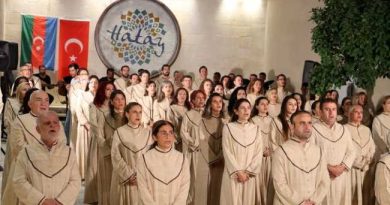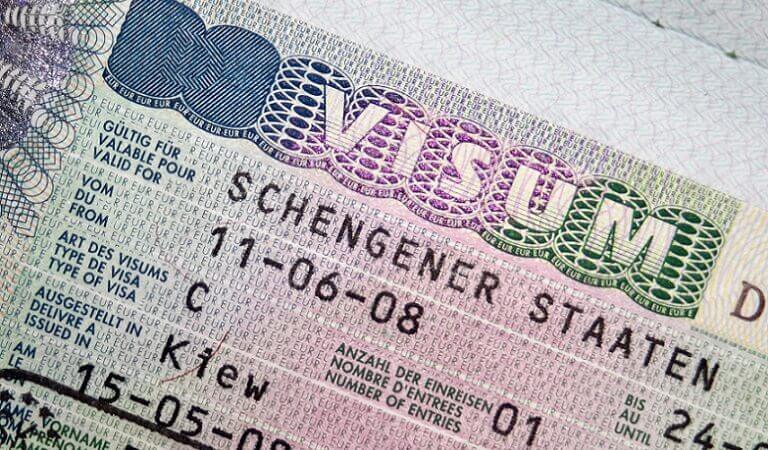A New Hope for Turkey & EU Relations
Regional leaders and figures at the ‘Brussels Forum’ this weekend highlighted the roles Turkey can play in upheaval sweeping through the countries to the south and east. While some participants rehashed familiar criticisms of Turkey, others noted the strategic value of the country’s historic relationships
As upheaval continues to sweep through the countries to the east and south of Turkey, a new relationship appears to be emerging to the west, in and among the countries so often antagonistic to Turkey’s stalled European Union aspirations.
The final day of a three-day conference of senior EU political, diplomatic and academic leaders, the “Brussels Forum,” sponsored by the German Marshall Fund, offered a glimpse of shifting relations – if not yet a clear picture.
The unfolding weekend violence in Syria dictates that Europe’s crisis managers focused on Libya and other Arab countries immediately engage Turkey, said Alexander Graf Lambsdorff, a German member of the European Parliament.
Lambsdorff added he was “flabbergasted that Turkey was not invited” to early planning of the still-unfocused operation to protect Libyan rebels, to which Turkey joined late and reluctantly but has committed not only a flotilla of ships but an air base in İzmir as well.
On the same Libya-focused panel was Swedish Foreign Minister Carl Bildt, who seconded the critical role of Turkey. “The Turks have been engaged at high levels in Syria in recent weeks,” Bildt told the gathering, saying they will certainly be asked to do more.
The meetings, which included Turkey’s EU negotiator Egemen Bağış, also demonstrated that all problems with the EU are not going to disappear. Lambsdorff, the EU’s Director General for Enlargement Michael Leigh and others criticized Turkey over familiar areas. Those included its resistance to open ports to Greek Cyprus, slowing commitment to EU reforms and continuing assaults on press freedom and arrests of journalists, explanations for which “strain plausibility,” Leigh said.
Bağış gave oft-repeated answers, including the government’s standard claim that journalist arrests are a function of an independent judiciary over which neither the government nor the ruling Justice and Development Party, or AKP, has authority.
But those issues faded behind Turkey’s growing profile and its assets that can help solve the region’s increasing turmoil, which most recently spread to Syria, on Turkey’s border. Bağış noted that Prime Minister Recep Tayyip Erdoğan spoke to Syrian President Bashar al-Assad as recently as Saturday night and stands ready to play a greater role.
He noted Turkey’s years of policing for NATO forces in Afghanistan without a single casualty. “We know how to communicate to the people in the region,” he said. He went on to lecture the gathering about how the dynamics of the growing revolts in Arab countries are in many ways inspired by Turkey’s democratic example, and said the EU has a responsibility to better treat the “source of that inspiration,” namely Turkey. “We are the most Western country in the East and the most Eastern country in the West,” Bağış said. Others quickly picked up on his argument:
Europe and the United States should not ask if Turkey’s axis has shifted or if it can be a model, said Robert Wexler, a former U.S. congressman who now heads the Daniel Abraham Center for Middle East Peace. “That’s not the question,” Wexler said. “The question should be, ‘How do we as Americans take advantage of [Turkey’s] historical relationships?’”
Ruprecht Polenz, chairman of the foreign affairs committee of the German parliament, said Turkey’s engagement in recent years, known as “zero problems with neighbors,” is squarely in conformity with Turkey’s duties as an EU candidate. “The zero problem policy is in accordance with EU demands,” Polenz said. “There should not be suspicions of Turkey’s motives.”
Leigh said the obvious mood in Turkey is that “if you don’t want us, we have other options.” In the face of that mood, both sides need to work together, but the EU needs to work hardest, he suggested. Switching to the topic of the Balkans, where Bosnia continues to bedevil European policy-makers, he said: “I don’t think we are going to get to a solution of Bosnian governance without Turkey.”
Bağış made it clear that Turkey is more than willing to be helpful, but expects greater consultation and respect. He noted Turkey’s early exclusion from NATO planning on Libya, the lack of leadership from Brussels to break the Cyprus deadlock and Turkey’s exclusion in recent years from meetings of the EU Council of Ministers.
“We have 500 years of history in the region,” Bağış said, noting the founder of Turkey, Mustafa Kemal Atatürk, studied in today’s Macedonia and later served in today’s Libya, all then part of Ottoman Turkey. “If Europe wants to have influence in this part of the world,” he said, “Turkey wants to be heard.” At least on Sunday, at a forum in a Brussels hotel, Turkey was.
March 27, 2011
SOURCE: Hürriyet Daily News





